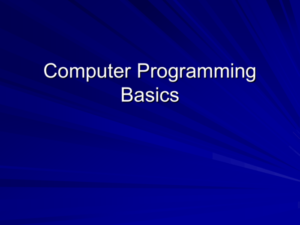Quantum computing news has burst into our lives like a surprise party thrown by Schrödinger’s cat! It’s a wild ride through the latest breakthroughs, where qubits are the new rock stars and algorithms are the backstage crew, changing the game of computing as we know it.
From mind-bending advancements in quantum hardware to jaw-dropping collaborations that are shaping our digital future, this article will dive deep into how quantum computing is not just a sci-fi fantasy but a rapidly unfolding reality across various industries.
Recent Developments in Quantum Computing

Quantum computing has been making headlines lately, and not just because it sounds like something straight out of a sci-fi movie. With recent breakthroughs, the field is rapidly evolving, pushing the boundaries of what’s possible and teasing us with the futuristic promise of computing power on steroids. Let’s dive into some of the most exciting advancements that are turning the theoretical into reality.
Breakthroughs in Quantum Hardware
Recent developments in quantum hardware have been akin to a high-speed chase in a supercar – thrilling and full of unexpected turns. Companies like IBM and Google have been racing to enhance qubit stability and coherence times. For instance, IBM’s latest quantum processor, ‘Eagle,’ boasts 127 qubits, which is like having a digital brain that can outsmart your average human in less than a heartbeat.
Essential advancements include:
- Qubit Quality: Researchers have successfully developed superconducting qubits that can maintain coherence for longer periods, resulting in more reliable computations.
- Topology Changes: Innovations in topological qubits are paving the way for error-resistant operations, making them the superheroes of quantum technology.
- Hybrid Systems: Combining classical and quantum systems is now more seamless, allowing for practical applications in complex problem-solving like never before.
The future of quantum computing looks not just promising, but downright electrifying!
Implications of New Quantum Algorithms
The advent of new quantum algorithms is shaking up the computing world like a snow globe in a winter storm. These algorithms are not only enhancing computational power but also redefining what we consider to be possible. With breakthroughs in Grover’s and Shor’s algorithms, we are staring down the barrel of a quantum revolution.Key implications include:
- Faster Problem Solving: Quantum algorithms are designed to solve problems exponentially faster than classical algorithms, which is especially useful for cryptography and optimization tasks.
- Machine Learning Supercharged: Quantum machine learning algorithms can analyze vast datasets at lightning speeds, leading to advancements in AI that feel like they belong in a tech dystopia.
- Complex Simulations: New algorithms enable the simulation of molecular structures and reactions with unprecedented accuracy, opening doors for breakthroughs in pharmaceuticals and materials science.
Quantum algorithms are the magical keys to unlocking computing potential we never knew we needed!
Partnerships and Collaborations in Quantum Technology
The future of quantum technology is being shaped not just in labs, but also through strategic partnerships that are as crucial as a good cup of coffee on a Monday morning. Collaborations between tech giants, startups, and academic institutions are fueling innovation at a pace that would make a cheetah blush.Highlights include:
- IBM and the U.S. Department of Energy: Their partnership is focused on developing quantum computing applications for energy efficiency and climate science, proving that even quantum tech can have a heart.
- Google and Volkswagen: This unlikely duo is exploring quantum computing for traffic optimization, which could mean faster commutes and fewer road rage incidents—what a time to be alive!
- Microsoft and Quantum Startups: By investing in various startups, Microsoft is building an ecosystem that encourages innovation and accelerates the development of quantum technologies.
In the world of quantum computing, teamwork makes the dream work—and they’re dreaming big!
Quantum Computing Applications Across Industries
In the vast universe of technology, quantum computing stands out as the dazzling superhero, ready to tackle the most complex challenges across various sectors. Its superpower? Mysterious quantum mechanics, which can solve problems that would make even the brightest classical computers scratch their heads in confusion. Industries ranging from finance to pharmaceuticals are beginning to harness this power, and the results are nothing short of spectacular.The application of quantum computing is not just about speed; it’s about transforming the way we think about and solve real-world problems.
Here’s a look at some of the sectors embracing quantum technology and the specific issues they’re untangling with this cutting-edge tool.
Finance and Risk Analysis
In the high-stakes world of finance, quantum computing is a game-changer. Financial institutions are exploring quantum algorithms for optimizing portfolios, pricing complex derivatives, and assessing risks. The ability to analyze vast datasets instantaneously gives them an edge in predicting market trends and making better investment decisions.
-
Quantum algorithms can process complex financial models at lightning speed, allowing for real-time decision-making.
- For example, JPMorgan Chase has been experimenting with quantum algorithms to optimize their trading strategies and risk management processes.
- Bank of America is also exploring quantum computing for improving fraud detection and enhancing customer service through advanced predictive analytics.
Healthcare and Drug Discovery
In healthcare, quantum computing is paving the way for groundbreaking advancements in drug discovery and personalized medicine. The ability to model molecular interactions at a quantum level could revolutionize how we develop and test new drugs.
-
Quantum computing can simulate complex biochemical processes that are otherwise impossible to analyze accurately.
- Companies like D-Wave and Google are collaborating with pharmaceutical giants to develop new drugs faster and more efficiently.
- For instance, quantum simulations can help identify potential drug candidates for diseases like Alzheimer’s, which have eluded researchers for decades.
Logistics and Supply Chain Management
The logistics sector is also set to benefit immensely from quantum computing. By optimizing supply chain operations, companies can reduce costs and improve delivery times, all while keeping customers happier than a kid in a candy store.
-
Quantum algorithms can evaluate multiple routes and conditions simultaneously, leading to more efficient supply chain solutions.
- IBM is working with major logistics companies to deploy quantum technology for route optimization, particularly in scenarios with unpredictable variables like traffic or weather.
- Companies like Volkswagen and DHL are also exploring quantum solutions for inventory management and logistics optimization.
Future Potential Applications
Looking ahead, the potential applications for quantum computing are as vast as the universe itself. Industries are merely scratching the surface, and as technology evolves, we can expect innovative solutions to emerge across various domains.
- Quantum computing could transform artificial intelligence by providing faster processing capabilities, enabling machines to learn and evolve in real-time.
- Environmental science could benefit from quantum simulations to model climate change impacts with unprecedented accuracy.
- Cybersecurity stands to gain from quantum encryption techniques that promise to make data breaches as outdated as dial-up internet.
Quantum Computing in Popular Culture and Humor

In a world where quantum computing reigns supreme, it’s no surprise that it has found its way into popular culture, often becoming the punchline of many a joke. From sitcoms to comic strips, the complexities of quantum mechanics are transformed into comedic gold, making the subject approachable for even the most mathematically-challenged among us. Let’s take a stroll through the whimsical side of quantum computing as we explore its humorous representations and the misunderstandings that often accompany them.
Comic Strip Idea Illustrating Quantum Complexity
Imagine a comic strip titled “Quantum Quandaries,” featuring two characters—a bewildered scientist and a sarcastic cat. In the first panel, the scientist is frantically scribbling equations on a chalkboard overflowing with quantum symbols, while the cat lounges lazily, peering over the edge with an unimpressed expression. The scientist exclaims, “If I can just solve this quantum superposition, I can finally explain it to the public!” In the next panels, the cat begins to interject with puns like, “So, you’re saying you have a ‘pawsitive’ or ‘negative’ charge on your explanation?” Finally, in the last panel, the scientist, now utterly confused, responds, “Forget it! I think I’ll just tell them it’s like a really complicated cat video—everyone gets that!” This comic strip captures both the complexity of quantum computing and the often humorous misconceptions surrounding it, making it relatable for readers.
Media Portrayals of Quantum Computing
Mainstream media loves to take a comedic lens to quantum computing, often portraying it as the “magic” behind everything from teleportation to time travel. Movies like “Ant-Man” and TV shows such as “The Big Bang Theory” have woven quantum mechanics into their narratives, often exaggerating the science for laughs. For example, on “The Big Bang Theory,” Sheldon once declared, “It’s not rocket science; it’s quantum physics! Oh, wait, it’s the same thing!” This line illustrates how media puns often blend scientific concepts with everyday situations, creating humor that, while scientifically inaccurate, is amusing and relatable.
Similarly, animated shows like “Futurama” have taken quantum mechanics to absurd levels, with characters casually discussing Schrödinger’s cat as if it were a common household pet.
Funny Anecdotes and Misunderstandings
Misunderstandings about quantum technology often lead to humorous scenarios that are too good not to share. Imagine a family dinner where one relative enthusiastically explains their new understanding of quantum computing, confidently stating, “So, it’s like your computer can be both on and off at the same time, right?” Another relative, nodding along, adds, “So, we can just leave it on all the time, and it’ll work itself out, like my laundry!” This moment captures the hilarity of how people misconstrue quantum principles, often leading to absurd conclusions that leave the scientifically-inclined shaking their heads and chuckling at the same time.In another instance, a tech-savvy friend tried to impress their date by saying, “I’m like a qubit, existing in multiple states of interest!” To which the date replied, “So, you’re undecided about dinner, too?” These anecdotes highlight how quantum computing has become a source of hilarity, one misinterpretation at a time, perfectly illustrating the intersection of science and humor in our everyday lives.
End of Discussion
As we wrap up our quantum journey, it’s clear that the world of quantum computing is as complex as it is exciting. With new applications emerging and a hearty dose of humor in our understanding, we can look forward to a future where quantum tech is as common as a coffee break—just hopefully without the quantum entanglement of our morning brew!
Answers to Common Questions
What is quantum computing?
Quantum computing harnesses the peculiar principles of quantum mechanics to process information in ways that classical computers can only dream of.
How does quantum computing differ from classical computing?
While classical computers use bits as the smallest unit of data (0s and 1s), quantum computers use qubits, which can be both 0 and 1 simultaneously, allowing for more complex calculations.
What are some practical applications of quantum computing?
Quantum computing is being used in fields like cryptography, materials science, drug discovery, and optimization problems across various industries.
Is quantum computing ready for commercial use?
While still in its infancy, quantum computing is progressing rapidly, with some commercial applications already emerging, though widespread use is still a few years away.
Who are the key players in quantum computing?
Major tech companies like IBM, Google, and Microsoft, along with a host of startups, are leading the charge in quantum research and development.






